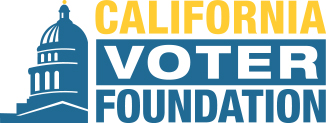16-year-olds can pre-register. Free postage comes next. California is all in on voter access
Excerpt:
In California, you can register to vote online. You can request a mail ballot without providing a reason. If your ballot is postmarked by Election Day, it can arrive up to three days late and still count. Starting next year, you won’t even need a stamp.
As states across the country have moved aggressively to crack down on alleged voter fraud, California has shifted rapidly in the other direction, passing landmark legislation intended to make it easier to vote and to count as many ballots as possible.
The change has been propelled by voting rights advocates, seeking to fix unintended consequences as a growing majority of Californians vote by mail, and by Democratic politicians hoping to spike plummeting turnout. Many of the new laws aim to boost participation among infrequent voters, such as young people, that generally favor Democrats.
----
Since 2013, when the U.S. Supreme Court struck down key protections in the Voting Rights Act, mostly conservative states have adopted laws creating additional obstacles for voters, such as showing identification at the polls and purging those who have not been active from the rolls. Supporters say this is meant to discourage fraudulent voting, but critics counter that voter fraud is a vanishingly small problem and the real motivation is dissuading potential Democratic voters.
California, on the other hand, has made a push to be as expansive as possible. Lawmakers introduced major bills every session over the past half-decade to bolster voter access.
In 2014, the state added three days of leeway for mail ballots that are sent before an election but arrive after. The following year, it gave voters who forget to sign their mail ballots an extra week to complete an affidavit with county election officials and still have their vote counted.
----
“On the whole, I’m really proud of California,” said Kim Alexander, president of the California Voter Foundation, a nonpartisan organization dedicated to improving the election process. “We are definitely treating voters better than they are being treated in other states.”
Voting laws vary by county
Alexander, however, still worries about unequal access to voting in different parts of California. Because the state has to reimburse counties if they mandate policy changes, some of the recent laws, such as all-mail elections, are optional. Alexander said that’s a problem for more rural or poorer counties, which may not have adequate resources to adopt the new guidelines.
The American Civil Liberties Union sued last year because some counties were reaching out to voters to correct signatures that did not match what was on file while others were simply discarding the mail ballots they could not verify.
Lawyers argued that this disparate approach disenfranchised infrequent voters, young people and those for whom English is a second language, all of whom had their ballots tossed at a higher rate than the average Californian. Experts estimated that election officials discounted nearly 46,000 votes in the 2016 presidential election.
In March, a judge ruled in favor of the ACLU, and California followed up with a bill this year requiring counties to notify voters whose ballots are contested and give them an opportunity to verify their signatures. A similar lawsuit is now playing out in Georgia, where Republican Secretary of State Brian Kemp, locked in a tight campaign for governor, has been accused of unfairly rejecting mail ballots due to signature mismatches.
“The only thing sadder than people not voting is people trying to vote and not having their ballot be counted,” Alexander said.
----
Alexander acknowledged that a small number of people may be wrongly registered to vote, but it is unlikely they are voting and certainly not at a scale to tip an election. She said ensuring equal access to voting and improving voter confidence in the security of election outcomes is far more important.
“When people feel that their vote counts, they are going to turn to the electoral process to work out their issues rather than some other process, which might be violent or dangerous,” she said. (Full story)

